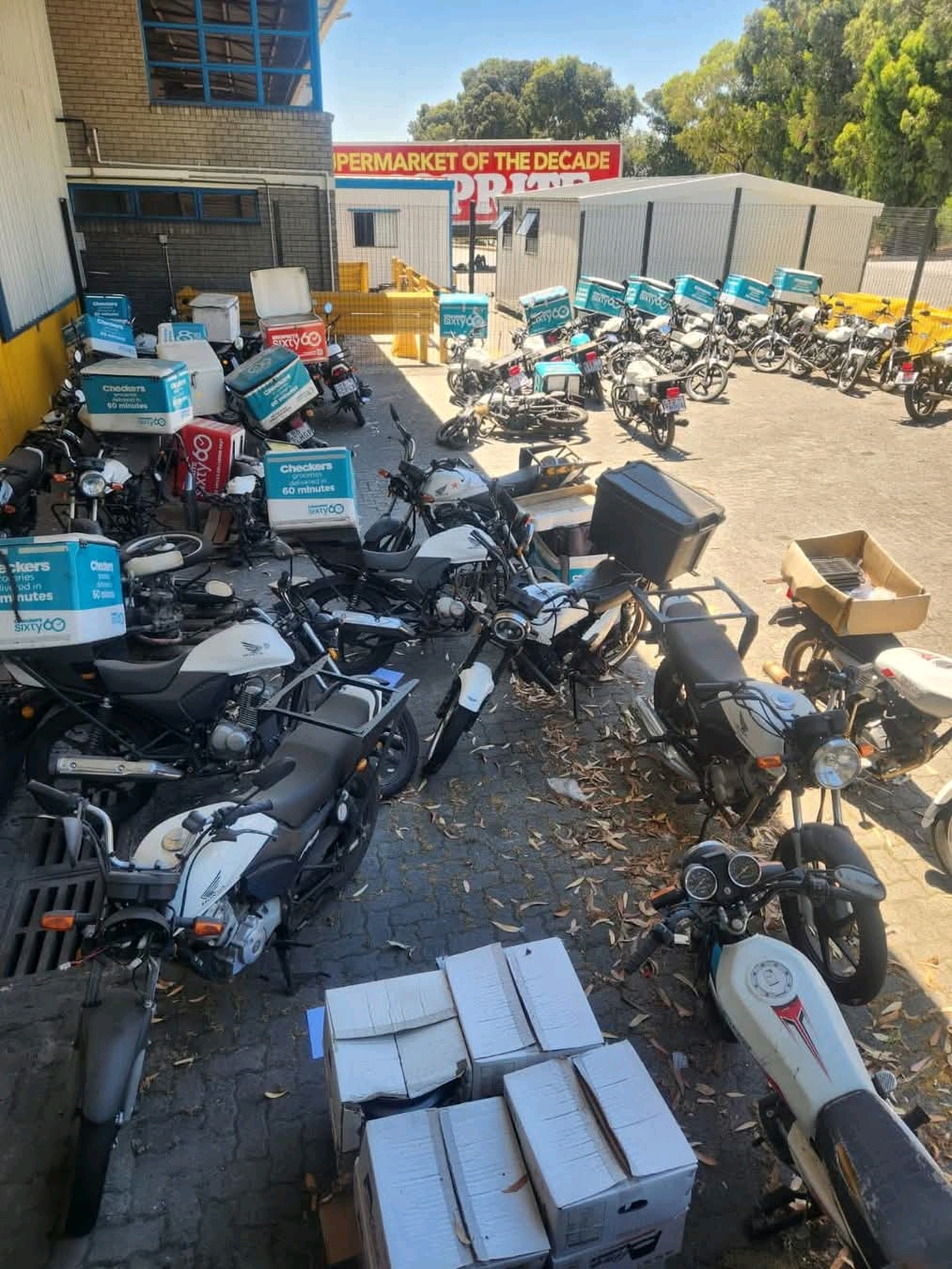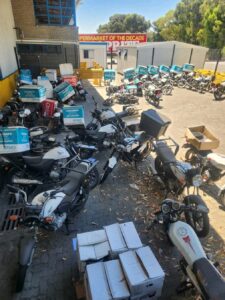
The Tshwane Metro Police Department (TMPD) has intensified its crackdown on unlawful road activity, arresting 140 foreign nationals found operating scooters without proper documentation or valid driving licences. This sweeping operation has reignited public debate about road safety, law enforcement, and the government’s ability to maintain control on South Africa’s increasingly congested and vulnerable road networks.

The arrests took place during a targeted operation aimed at addressing the rising number of unregistered scooters and unlicensed drivers moving through the city. According to TMPD officials, many of these scooters are used for deliveries, making them frequent users of busy roads and highways. The absence of proper legal documents—not only for the drivers but also for the vehicles they operate—poses a significant safety risk to both motorists and pedestrians.
Authorities emphasised that the operation was not about targeting foreign nationals, but rather about enforcing compliance with road regulations that apply to everyone. They explained that unlicensed and undocumented drivers threaten public safety, especially as South Africa grapples with increasing road accidents involving motorcycles and scooters. Without licences, drivers often lack the necessary training and road knowledge required to navigate traffic safely. Without proper documentation, identifying culprits in accidents becomes nearly impossible.
Despite these assurances, the arrests have sparked a heated conversation among residents. Some hail the operation as long overdue, arguing that unchecked illegal activity on the roads contributes to lawlessness and a sense of disorder. They believe stricter and more frequent enforcement is necessary to restore safety and accountability.
However, others suggest that the issue points to deeper structural failures. While TMPD is making progress on the ground, critics question whether these arrests reflect only a small fraction of a much larger problem. Many community members are asking: *How many more unlicensed and undocumented scooter drivers are still operating freely?* The concern stems from the increasing reliance on scooter-based delivery services, many of which employ migrants who may not have access to proper documentation or formal employment channels.
The uncertainty has led to broader concerns about whether national and local government authorities are doing enough to protect citizens. South Africa’s road safety record is already troubling, and the presence of unqualified drivers exacerbates the situation. People fear that the combination of illegal operations, weak regulatory enforcement, and overwhelmed policing structures is creating a dangerous environment for lawful road users.
The arrest of 140 individuals is significant, but experts warn that it should not be viewed as a final solution. Instead, they argue it must be the beginning of a more comprehensive approach. This would include stricter monitoring of delivery companies, improved documentation processes, and increased roadside inspections. Additionally, there are calls for better coordination between immigration authorities and traffic enforcement units to ensure consistency in handling undocumented foreign nationals on the roads.
As the debate continues to intensify, one thing is clear: South Africa’s roads are at a critical point. For many citizens, the question is no longer about isolated incidents but about a pattern that suggests systemic challenges. The TMPD operation has brought these issues to the forefront, highlighting the urgent need for stronger governance, better enforcement, and a commitment to keeping all road users safe.
With the 140 arrests serving as a wake-up call, the spotlight is now firmly on authorities to ensure that the streets of Tshwane—and the rest of the country—do not remain vulnerable to unregulated and illegal road activity.




